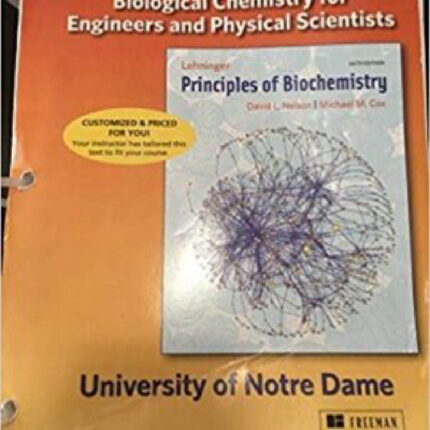Chapter 11 Carbohydrates
Matching Questions
Use the following to answer Questions 1–10:
Choose the correct answer from the list below. Not all of the answers will be used.
a) Fehling’s
b) enantiomers
c) UDP
d) glycogen
e) monosaccharides
f) cellulose
g) lectins
h) mucoproteins
i) axial
j) proteoglycans
k) epimers
l) glycosyltransferases
1.
____________ This class of compounds has the molecular formula of (CH2O)n.
Ans: e
Section: 11.1
2.
____________ These are stereoisomers that are mirror images of each other.
Ans: b
Section: 11.1
3.
____________ These monosaccharides differ at a single asymmetric carbon.
Ans: k
Section: 11.1
4.
____________ This is among the most abundant organic molecule in the biosphere.
Ans: f
Section: 11.2
5.
____________ This is a test solution used to identify reducing and nonreducing sugars.
Ans: a
Section: 11.1
6.
____________ The storage form of glucose in animals.
Ans: d
Section: 11.2
7.
____________ The class of glycoproteins with predominantly N-acetylgalactosamine moieties.
Ans: h
Section: 11.3
8.
____________ These are the enzymes that synthesize oligosaccharides.
Ans: l
Section: 11.3
9.
____________ Molecule to which most sugars are attached prior to transfer.
Ans: c
Section: 11.3
10.
____________ These proteins bind to specific carbohydrate structures.
Ans: g
Section: 11.4













Reviews
There are no reviews yet.